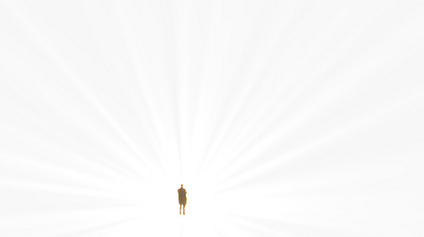The happiness impact of less
Blame it on the stagnating recession, glut of millenials without jobs and consequently disposable incomes, or increased environmental and social awareness, but there’s no denying that minimalism is trending right now. Articles, websites, and blogs abound touting the positive effects of all sorts of minimalism—minimal stuff, actions, and thoughts. Proponents of minimalism say it brings happiness, but does it really?
What is Minimalism?
“The Minimalists”, Joshua Fields Millburn and Ryan Nicodemus, have written four best-selling books on minimalism, and write theminimalists.com. They say: “Minimalism is a tool we use to live a meaningful life. It is a tool to achieve happiness, which is (let’s face it) what we are all looking for. We all want to be happy. Minimalism can help. There are no rules in minimalism … Minimalists choose to get rid of the unnecessary in favor of what’s important … Minimalists search for happiness not through things, but through life itself. Thus, it’s up to you to determine what is necessary and what is superfluous to your life.”
They’re not just talking about giving up stuff, but people, relationships, jobs, thoughts … letting go of anything that is unnecessary to your happy life. Think of minimalist shoes, which the country is crazy for because they help get us back to our natural state … of walking.
Minimal Stuff
Of course, the outward execution of minimalist life often takes the form of getting rid of stuff. According to Story of Stuff, the average American produces about 4.4 pounds of garbage a day. That’s 29 pounds per week or 1,600 pounds a year.
Our stuff enslaves us in many ways: we have to pay for it, we have to take care of it and clean it, it takes up valuable physical space in our homes, and our stuff reduces our mobility—think about how much you hate packing to move. You know the benefit you get when you organize your desk, throwing away papers you don’t need, streamlining your workspace? That’s the feeling you get from minimizing other stuff in your life too.
Downsides of Minimalism
The original minimalist, Leo Babauta, published a tongue-in-cheek “Downsides of Minimalism” list on his mnmlist.com site. But one bullet point is truly a fair warning: “Others might feel threatened by you, because your minimalism will be seen as a criticism of their lifestyle. They will live.”
Babuta also uncopyrights his work, saying “The uncopyright creator lets go of ownership, because to hold on to ownership hurts the world, and to try to protect that ownership leads to unnecessary stress. The minimalist also eschews ownership, at least to some degree, and believes owning things doesn’t make him happy. Doing things makes him happy. Helping others makes him happy. Creating makes him happy.“
You can ease into minimalism by being extremely conscious about what you buy, and purging items from just one room—or one closet, or one bin—in your home. See how that affects your sense of commitment to your stuff, and decide if moving forward toward a more minimalist life is right for you … according to minimalist experts, it could make you much happier!
Image: Some rights reserved by lrargerich

